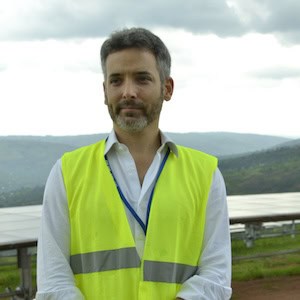-
Comparing Business Models for Scaling Access to Productive Use of Energy Appliances in Agriculture: The Advantages of Pay-Per-Use
Productive Use of Energy (PUE) appliances — including solar refrigerators, water pumps and more — can boost productivity, income and quality of life in vulnerable communities. But as Ankur Singh, Argha Ghose and Clementine Chambon at Oorja explain, challenges like high upfront costs, lack of financing and poor after-sales service hinder their adoption among these consumers. They explore several business and end-user financing models that can support PUE uptake in agriculture, and explain why the pay-per-use model is uniquely suitable for low-income consumers.
- Categories
- Agriculture, Energy, Finance, Technology
-
Taking Stock of India’s Fintech Landscape: A Venture Capital Firm Shares Six Insights from One of the World’s Most Vibrant Investment Markets
The global team at Quona Capital — a venture capital firm focused on inclusive fintech — recently concluded a visit to India, during which they immersed themselves in the local fintech ecosystem. Michel Zaidler at Quona shares six insights they gathered from several of their Indian portfolio companies, and from these companies' customers and other fintech thought leaders. He highlights some of the groundbreaking business models these fintechs are using, and explains why the Indian market offers unique opportunities to investors.
- Categories
- Agriculture, Finance, Investing, Technology
-
Under-Leveraged Best Practices for Scaling Productive Use of Energy Appliances: Part 1 — Sales Support and Market Access
Productive Use of Energy (PUE) appliances can increase revenue for low-income populations, mitigate climate change and improve global energy access. But according to Thomas Charoy and Lucie Klarsfeld McGrath at Hystra, uptake of PUE appliances remains slow, due in part to the training, market linkages and after-sales support needed for customers to get the full benefit from these complex products. They explore some common challenges and best practices in selling PUE solutions, focusing on the appliances with the most mature and promising markets: solar water pumps and solar refrigerators.
- Categories
- Agriculture, Energy, Environment, Technology
-
Women Sales Agents are the Key to Last-Mile Distribution: Here are Four Ways to Maximize Their Impact
Many development and entrepreneurship programs around the world have engaged women sales agents as last-mile distributors, as their involvement can advance multiple business and impact goals. But as Shihab Uzzaman and Trisha Clauson at Bopinc point out, though some of these initiatives have succeeded, many have failed. They share four key practices Bopinc leveraged in a last-mile distribution project in Bangladesh that can boost the performance of other businesses and programs that enlist women sales agents in their distribution efforts.
- Categories
- Social Enterprise
-
AI in African Healthcare: The Good, the Bad and the RECKLESS
Artificial intelligence (AI) can have a major positive impact on the cost and quality of healthcare in emerging economies. But as AI gains traction in Africa's healthcare market, Mark Wien at PocketPatientMD calls out an alarming trend: New AI solutions are being introduced into actual practice without the proper safeguards, standards and scrutiny. And even worse, these solutions are often being developed by non-medical professionals and technologists, who rush to roll out new tools without caution — and without acknowledging or perhaps even understanding the risks they pose to vulnerable patients and health systems. He urges Africa's healthcare industry — including doctors themselves — to address this issue with the seriousness it deserves.
- Categories
- Health Care, Technology
-
Private Business Alone Can’t Bring Energy to the Last Mile: Why Philanthropy Should Shift its Focus to Scalable Non-Profit Models
Africa is home to countless failed pay-as-you-go energy businesses that couldn't sustain themselves after their grant funding dried up. According to Aneri Pradhan at New Energy Nexus, this highlights the shortcomings of market-led approaches to last-mile energy access across the continent. She argues that philanthropic funding has largely failed to create sustainable energy businesses in these communities, as customers cannot afford clean energy at their current income levels. Instead, she encourages funders to support non-profit models that have proven their ability to reach these communities at scale.
-
Mobilizing Capital in the Low-Cost Private School Sector: Key Insights Two Years into an Innovative Partnership
One in five children in sub-Saharan Africa are out of school, and without scalable solutions, the region — like other emerging markets — won’t meet SDG 4’s goal of education for all. Mauricio Rincon and Mathieu Fourn at Opportunity International, and Alvaro Ma at Oikocredit argue that affordable non-state schools can help address this need — but only if they're supported by financial institutions and impact investment. They share learnings from a partnership between Opportunity and Oikocredit that is directing millions of dollars in capital to these schools, along with capacity building and other support.
-
Reshaping Africa’s Food Systems: Three Opportunities to Drive Sustainable, Inclusive and Scalable Impact
Africa's agricultural sector is plagued by low yields, fragmented value chains and a large finance gap, and the region is home to 60% of the world’s uncultivated arable land. As Neil Wood, Oscar Garza and Hanna Dohrenbusch at Open Capital explain, these challenges have brought the sector to a critical juncture. They share three key solutions based on Open Capital's work on 450+ agriculture and food systems projects across Africa, which have the power to help drive the future of agriculture on the continent in the decades to come.
- Categories
- Agriculture, Energy, Environment, Investing, Technology










